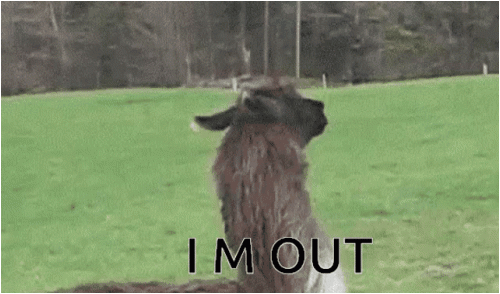
Everyone Says I’m Running Away
Everyone says I’m running away. But no one understands the real reason behind my actions. They see an escape, a desperate attempt to avoid something difficult. But they don’t see the courage it takes to step away from a toxic situation.
Running away is often seen as a sign of weakness, as if I’m avoiding my problems. But sometimes, running away is the only way to protect oneself. It’s a decision made to prioritize my own well-being and mental health.
Society has a tendency to judge those who walk away from a challenging situation. They label us as quitters or cowards. But they fail to see the strength it takes to make that choice. Running away can be an act of bravery, a declaration that I deserve better.
So, before you judge me for running away, take a moment to understand the nuances of my situation. It’s not about cowardice or giving up, but about self-preservation and finding the courage to start anew. Running away is not always a negative thing; sometimes, it’s the best decision one can make.
Understanding the Perception
It can be frustrating when it feels like everyone around you believes you are constantly running away from your problems. Whether it’s because of a history of constantly changing jobs or relationships, or a desire to explore new places and experiences, this perception can be difficult to shake.
I’m often met with raised eyebrows when I mention my latest travel plans or career change. People seem to assume that my desire to explore new opportunities means I am avoiding responsibility or commitment. However, it’s important for others to understand that my choices are not driven by a fear of commitment, but rather a desire for personal growth and development.
It’s also worth noting that the perception of constantly running away is often a result of a lack of understanding or empathy. It’s important to remember that everyone’s journey is unique, and what may seem like running away to one person may be seen as self-discovery and growth to another.
Ultimately, it’s crucial for others to recognize that my choices are driven by a genuine curiosity and thirst for knowledge, rather than a fear of settling down or facing challenges. It’s important to have open and honest conversations to dispel any misconceptions and allow others to see the true motivations behind my actions.
In conclusion, while it may be easy for others to view my lifestyle as constantly running away, it’s important to take the time to understand the motivations and desires behind my actions. Instead of making assumptions, it’s crucial to have open-minded discussions and show empathy towards different ways of life. Only through understanding can we break down the barriers of judgment and truly appreciate each other’s unique journeys.
The Fear of Change
Change can be scary. It is human nature to be hesitant when faced with the unknown. When we are comfortable in our routines and familiar surroundings, the thought of stepping out of our comfort zone can send us running in the opposite direction.
The fear of change can often manifest itself in various ways. For some, it may result in feelings of anxiety and unease. They may constantly question themselves, wondering if they are making the right decision. Others may become paralyzed by fear, unable to take any action at all.
But why is it that everyone seems to think I’m running away from change? Maybe it’s because I have always been one to seek new experiences and challenges. I’m not afraid of taking risks and stepping into the unknown. I believe that change is necessary for personal growth and development.
So, rather than running away from change, I embrace it. I see it as an opportunity to learn and evolve, to become a better version of myself. I understand that change may not always be easy, but I am willing to face the challenges that come with it.
In conclusion, the fear of change is a common experience for many people. It can be intimidating to step out of our comfort zones and embrace the unknown. However, by facing our fears and embracing change, we can grow and learn from new experiences. So, instead of running away, let’s face the fear of change head-on and seize the opportunities it presents.
Misinterpretation of Actions
It seems like everyone is quick to assume that I’m running away whenever I take some time for myself. But the truth is, I’m not running away from anything or anyone. I simply need some space to recharge and reflect on my own.
People often misconstrue my actions as a sign of running away because they don’t understand the importance of self-care. They may see it as a form of escapism or avoidance, when in reality, it’s a necessary part of maintaining my mental and emotional well-being.
When I say I need some time away, it’s not because I’m trying to avoid responsibilities or confrontations. It’s because I need to prioritize my own needs and emotions. Taking a step back allows me to gain perspective, process my thoughts, and come back refreshed and ready to face whatever challenges lie ahead.
I encourage others to consider the possibility that their assumptions about me running away are based on their own fears and insecurities. It’s not fair to judge someone without fully understanding their motivations and intentions.
Instead of assuming the worst, it would be more helpful if people could respect my need for solitary moments and support me in taking care of myself. After all, self-care is not a selfish act, but rather an essential part of maintaining overall well-being and happiness.
Media Influence
The media plays a significant role in shaping public opinion and influencing people’s perceptions. With the proliferation of digital platforms, everyone is constantly bombarded with information from various sources. News outlets often sensationalize stories to attract viewership and increase their ratings. This constant exposure to sensationalized news can create a distorted view of reality and make people believe in exaggerated narratives.
- According to recent studies, media portrayal of certain events or individuals can influence public opinion and shape people’s attitudes towards them. For example, if the media repeatedly says that someone is running away, everyone will start perceiving that person as guilty or untrustworthy.
- Furthermore, the media has the power to manipulate public perceptions by selectively covering certain stories while ignoring others. This cherry-picking of information can create a biased narrative and influence how people perceive certain issues or individuals.
- The media’s influence is not limited to news outlets. Various forms of entertainment, such as movies, TV shows, and social media influencers, also contribute to shaping public opinion. These platforms often create unrealistic standards of beauty, success, and lifestyle, which can have a detrimental effect on individuals’ self-esteem and self-worth.
It is essential to be critical consumers of media and be aware of its potential biases and agenda. By seeking multiple perspectives, fact-checking information, and being mindful of the media’s influence, we can develop a more balanced and informed view of the world.
Social Media Speculation
Speculation on social media surrounding the reasons why everyone thinks I’m running away has been rampant. While I’m here to set the record straight, it’s important to address some of the theories that have been circulating.
First and foremost, let me clarify that I’m not running away. Contrary to what some may say, I’m simply taking a break from my usual routine to explore new opportunities and focus on personal growth. However, this hasn’t stopped the influx of comments and assumptions from the online community.
One common theory that has gained traction is that I’m running away from my responsibilities. This couldn’t be further from the truth. In fact, I’m actively working on finding a better balance between my personal and professional life. It’s important to prioritize self-care and well-being, and I encourage everyone to do the same.
Another theory speculates that I’m running away from problems or conflicts. While it’s true that life can sometimes throw challenges our way, running away is never the solution. Instead, I’m facing these issues head-on and taking steps to resolve them in a healthy and constructive manner.
It’s important to remember that social media speculation is often based on assumptions, rumors, and incomplete information. While it’s natural for people to be curious and share their thoughts, it’s always best to approach these discussions with an open mind and engage in respectful dialogue.
Exploring Personal Reasons
Running away is often perceived as a sign of escaping from one’s problems or responsibilities. However, it is essential to understand that there can be various personal reasons why someone may feel the need to run away. It is crucial to approach such situations with empathy and try to understand the underlying factors that contribute to this feeling.
Firstly, running away can be a result of overwhelming emotions or stress. Sometimes, individuals may feel suffocated by their circumstances and believe that distancing themselves is the only way to find solace. This can be a manifestation of a need for self-care and taking a break to prioritize one’s mental and emotional well-being.
Secondly, running away can be a pursuit of self-discovery and growth. Exploring new places and experiences can provide individuals with a fresh perspective on life and help them broaden their horizons. It allows people to step out of their comfort zones and gain a deeper understanding of themselves and their aspirations.
Thirdly, running away can be an act of seeking independence and freedom. Sometimes, individuals may feel constrained by societal expectations or pressures from others, and running away can be an attempt to reclaim their autonomy. It can be a means of asserting oneself and making choices that align with personal values and desires.
In conclusion, it is essential to recognize that running away is not always a negative action. It can be a way for individuals to prioritize their well-being, seek personal growth, or assert their independence. Instead of judging someone who expresses the desire to run away, it is crucial to offer understanding and support, encouraging open communication and providing assistance if needed.
Desire for Independence
Running away is often associated with a strong desire for independence. It is a way for individuals to break free from the constraints and expectations of their current situation and explore the world on their own terms. While not everyone may understand or support this desire, it is important to recognize that it is a natural part of personal growth and self-discovery.
For some people, the feeling of being tied down is overwhelming. They may feel trapped in their current environment, whether it be a small town, a restrictive job, or an unhealthy relationship. This feeling can create a strong urge to escape and seek out new experiences, new people, and new opportunities.
The desire for independence is not necessarily a desire to leave everything behind and cut ties with everyone. It is about taking control of one’s own life and making choices that align with personal values and aspirations. It is about seeking out new challenges and pushing boundaries, even if it means stepping outside of one’s comfort zone.

Running away does not always mean physically leaving a place. It can also mean mentally distancing oneself from negative influences or toxic relationships. It can mean setting boundaries and making decisions that prioritize personal well-being and happiness.
Overall, the desire for independence is a powerful motivator for many individuals. It is a call to explore, grow, and find one’s place in the world. While it may be difficult for everyone to understand, it is important to respect and support those who feel this way, as their journey may lead them to discover their true selves.
Escaping Negative Environments
When it comes to escaping negative environments, there are different ways to approach the situation. Some people prefer to physically remove themselves from the toxic situation by running away. However, running away might not always be the most effective solution, as it can leave the underlying issues unresolved.
One option is to address the negative environment directly. This can involve confronting the individuals or circumstances that are causing the negativity. By speaking up and expressing your feelings, you can potentially bring about changes and improve the situation. It takes courage to confront these challenges head-on, but it can lead to a more positive and healthier environment.
Another approach is to focus on personal growth and self-improvement. This involves working on yourself to develop stronger coping mechanisms and build resilience. By cultivating positive habits, such as practicing self-care and surrounding yourself with supportive people, you can better withstand the negative influences of your environment.
In some cases, it may be necessary to seek external support. This can involve therapy or counseling, where you can gain valuable insights and strategies to navigate the negative environment. Additionally, connecting with a supportive community or joining a support group can offer a sense of belonging and understanding.
Ultimately, the decision to escape a negative environment or not is a deeply personal one. It’s important to evaluate your specific situation and consider the potential consequences. Remember that running away might provide temporary relief, but it may not address the root causes of negativity. By exploring different strategies and seeking support, you can work towards creating a more positive and fulfilling environment for yourself.
Fear of Confrontation
One common reason why everyone thinks I’m running away is because I have a fear of confrontation. Whenever a difficult or uncomfortable situation arises, I tend to avoid it and choose to escape instead. This fear of confrontation stems from a deep-seated anxiety about conflicts and the potential negative outcomes they may have.
I’m often afraid that confrontations will escalate into arguments or that I will say or do something wrong that may damage relationships or hurt others. As a result, I prefer to distance myself from any confrontational situations, even if it means physically running away from them.
This fear of confrontation not only affects my personal relationships but also my professional life. I find it challenging to express my opinions or stand up for myself in the workplace, fearing that it may lead to conflicts or negative consequences.
However, it’s important for me to recognize that running away from confrontations doesn’t solve the underlying issues. It’s crucial to develop healthier coping mechanisms to address conflicts, such as effective communication, active listening, and assertiveness. By confronting my fear of confrontation and learning to navigate difficult situations, I can improve my relationships, build self-confidence, and cultivate a more fulfilling life.
The Pursuit of New Opportunities
As the saying goes, “Everyone says I’m running away”. But what if I’m not running away from something, but rather running towards something? The pursuit of new opportunities is a natural part of life. It’s about exploring uncharted territories and venturing into the unknown.
Embarking on a new journey doesn’t mean leaving everything behind, it means embracing change and growth. It’s about stepping out of one’s comfort zone and challenging oneself to reach new heights. When I say I’m pursuing new opportunities, I’m saying that I’m ready to take on new challenges and expand my horizons.
Exploring new opportunities may require leaving familiar surroundings and stepping into unfamiliar territory. It can be daunting, but it’s also exciting. It’s about pushing boundaries and discovering new talents and skills that we never knew we had.
Furthermore, the pursuit of new opportunities is not just about personal growth, it’s about making a positive impact on the world. It’s about finding ways to contribute our unique talents and abilities to make a difference in the lives of others.
So, if everyone thinks I’m running away, perhaps they should reconsider. I’m not running away, I’m running towards new opportunities, towards personal growth, and towards making a meaningful impact. And that’s something worth pursuing.
Addressing External Factors
When it comes to the perception of running away, there are often external factors that contribute to this misconception. People may assume that I’m running away simply because they don’t understand the reasons behind my actions. It’s important to address these external factors to clear up any misunderstandings and provide a more accurate understanding of my situation.
- Lack of Communication: One common external factor is a lack of communication. When people don’t have all the information, they tend to make assumptions. By openly discussing my reasons and intentions, I can help others understand that I’m not running away, but rather making a decision based on personal growth or other valid reasons.
- Social Pressure: Another external factor that may contribute to the perception of running away is social pressure. Society often expects individuals to follow a certain path or conform to specific norms. When someone deviates from these expectations, they may be labeled as running away. By challenging these societal norms and expressing my individuality, I can help others see that there’s more than one way to live a fulfilling life.
- Fear of the Unknown: Fear plays a significant role in how others perceive running away. Stepping into the unknown can be intimidating, and people may project their own fears onto my situation. By emphasizing the positive aspects of taking risks and embracing new adventures, I can help others overcome their own fears and see that running away can be a transformative and enriching experience.
- Misinterpretation of Motives: Sometimes, the perception of running away is a result of misinterpreting my motives. Just because I’m choosing a different path or making changes in my life doesn’t mean I’m trying to escape from responsibilities or challenges. By clearly communicating my motives and intentions, I can dispel any misconceptions and show others that running away doesn’t always imply a desire to avoid difficulties.
Addressing these external factors can help shift the narrative surrounding my actions. By challenging preconceived notions and fostering understanding, I can show others that running away doesn’t necessarily mean running from something negative, but rather running towards personal growth, self-discovery, and new opportunities.
Family Pressure
Everyone in my family says that I’m running away. The truth is, I’m not running away from anything, but rather running towards something. I’m on a journey of self-discovery and personal growth, and my family just doesn’t understand.
My parents constantly put pressure on me to follow the path they’ve laid out for me. They want me to pursue a traditional career, get married, and have a family. But that’s not what I want for my life. I want to travel, explore different cultures, and pursue my passions. I want to live life on my own terms.
It’s hard for my family to accept that I’m not conforming to their expectations. They see my choices as a rejection of them and their values. They worry that I won’t be successful or happy. But what they don’t realize is that I’m happiest when I’m following my own path, not the one they’ve set for me.
Despite their disapproval, I know that I’m making the right decision for myself. I’m not running away from anything, I’m running towards a life that fulfills me. I refuse to settle for a life that doesn’t align with my true desires and dreams.
It’s important for me to stay strong and trust my own instincts, even when faced with criticism and judgment from my family. I know that my journey may not be easy, but it’s worth it to live a life that is authentic to who I am. So while everyone may think I’m running away, I know that I’m running towards a future filled with happiness and fulfillment.
Peer Expectations
Peer expectations can have a significant impact on how we perceive ourselves and how others perceive us. When it comes to running, I’m often faced with the assumption that I’m trying to escape from something or that I’m avoiding certain responsibilities. This perception is not only frustrating but also unfair to me and to everyone else who enjoys running.
It is important to recognize that not everyone enjoys the same activities or finds joy in the same things. Running can be a form of self-care, a way to clear one’s mind, or simply a way to stay active. It is not always about running away from something, but rather about running towards something, be it personal goals, a healthier lifestyle, or a sense of accomplishment.
It is crucial for everyone to challenge these preconceived notions and understand that running, or any other activity, should not be judged based on assumptions. Instead of assuming that someone is running away, it would be more beneficial to ask and understand their motivations. By doing so, we can create a more supportive and inclusive environment for everyone, where individual interests and passions are respected and celebrated.
Peer expectations should not dictate our actions or define who we are. It is essential to remember that everyone is entitled to pursue their own interests and activities without judgment or criticism. As individuals, we have the power to educate others about the true motivations behind our actions and challenge societal norms that may limit our choices. Let us embrace diversity and encourage others to pursue their passions, even if they may seem unconventional or misunderstood.
Cultural Norms
In different cultures, there are various cultural norms that dictate how people should behave. These norms can vary greatly from one society to another and are influenced by factors such as history, religion, and social values.
Running away from situations can be seen as a violation of cultural norms in some societies. In certain cultures, it is expected that individuals confront their problems instead of avoiding them. This expectation may contribute to the perception that “everyone thinks I’m running away” when someone chooses to remove themselves from a challenging situation.
However, in other cultures, running away can be viewed as a valid response to difficult circumstances. For example, in some cultures, people may prioritize self-preservation and view running away as a means of protecting oneself in dangerous or abusive situations.
It is important to recognize the cultural diversity that exists and understand that different societies may have different norms when it comes to running away. These norms are shaped by a variety of factors and can even differ within the same country or region.
Ultimately, the perception of running away will depend on the cultural context and the individual’s own values and beliefs. It is essential to approach the topic with an open mind and respect for cultural differences.
Political Instability
In the midst of the current political climate, the topic of political instability is on everyone’s mind. People are becoming increasingly worried about the current state of affairs and what it means for the future. The uncertainty and lack of stability in the government is causing many to question the direction our country is heading.

One of the main concerns that everyone says is running away is the constant turnover in leadership. With frequent changes in administration, it can be difficult to establish long-term initiatives and policies. This lack of continuity leaves many feeling unsure about the future and uncertain about the effectiveness of the government.
Another aspect of political instability that has people on edge is widespread corruption. Reports of bribery, embezzlement, and misuse of public funds are all too common. This undermines trust in the government and further contributes to the sense that those in power are more interested in personal gain than in serving the people.
Add to this the growing polarization and divisiveness among political parties and ideologies, and it’s no wonder people feel like they are running away from a stable political system. The inability to find common ground and work towards solutions only deepens the divide and hinders progress. This constant bickering and lack of cooperation erodes public trust and leaves many feeling disillusioned with the political process.
Overall, the current state of political instability is a cause for concern for everyone. It not only threatens the proper functioning of the government, but also the well-being of the citizens. It is imperative that steps are taken to address these issues and restore stability and trust in the political system. Otherwise, the consequences could be dire for the future of our country.
Breaking Down the Stereotypes
It’s a common misconception that running away is a sign of weakness or a lack of responsibility. However, everyone’s reasons for leaving their current situation are unique and often complex. Instead of jumping to conclusions, it’s important to take the time to understand and empathize with individuals who may be considering or have already made the decision to run away.
I’m frequently told that running away is a cowardly act. But the truth is, running away can be an act of courage and self-preservation. Sometimes, leaving a toxic environment or a situation that is causing immense suffering is the only way to find peace and happiness. It takes immense strength to face the unknown and take a leap of faith in pursuit of a better life.
Running away should not automatically be associated with irresponsibility. While it may seem reckless to some, it’s important to remember that everyone has their breaking point. Sometimes, staying in a harmful or unhealthy situation can be more detrimental in the long run. Taking control of one’s own life and making difficult decisions is a sign of maturity and the willingness to take responsibility for one’s own well-being.
We must also be cautious not to generalize or stigmatize individuals who choose to run away. Each person’s story and reasons are unique and complex. Stereotyping or judging someone based solely on the fact that they left their previous situation oversimplifies their experience and disregards the many factors that may have led them to that decision.
Breaking down the stereotypes surrounding running away requires compassion, understanding, and an open mind. Instead of assuming the worst, let’s strive to create a society that supports and uplifts individuals who have made the difficult decision to find a better life for themselves. Together, we can challenge the misconceptions and create a more inclusive and empathetic world.
Stereotypes of Travelers
When I tell people that I’m going away again, there is always a collective sigh and a chorus of “Again?”. It seems that everyone thinks I’m constantly running away from something, when in reality, I’m just following my passion for exploring new places.
One stereotype that often comes up is that travelers are irresponsible and can’t hold down a steady job. People assume that because I’m always on the move, I must not have any real commitments or responsibilities. But that couldn’t be further from the truth. Travelers, like myself, are often highly organized and adaptable, making them valuable assets in any workplace.
Another common stereotype is that travelers are constantly seeking out dangerous or risky experiences. While it’s true that we enjoy stepping out of our comfort zones and embracing new challenges, it doesn’t mean that we’re recklessly putting ourselves in harm’s way. In fact, travelers are often very mindful of their safety and take precautions to ensure a smooth and enjoyable journey.
Some people also believe that travelers are just trying to escape from their problems or their reality. But for many of us, traveling is a way to gain perspective and broaden our horizons. It’s not about running away from our problems, but rather finding new perspectives and solutions to them.
In conclusion, don’t judge a traveler based on stereotypes. Instead, recognize the curiosity and passion that drives us to explore the world. Travelers are not running away, but rather running towards new experiences and opportunities for personal growth.
Stigma of Being a “Runaway”
Running away can be a desperate act, often fueled by a mix of fear, frustration, or a desire for independence. Unfortunately, society tends to view individuals who run away as rebellious troublemakers or lost souls. This negative stigma can lead to misconceptions and preconceived notions about why someone chooses to leave their home and family behind.
People who run away are often judged based on assumptions, without considering the underlying reasons behind their actions. The common misconception is that they are running away from responsibilities or problems they caused themselves. However, the truth is that many individuals, especially teenagers, may be escaping from abusive or toxic environments that threaten their well-being.
The stigma also extends to the perception that those who run away are unable to handle the pressures and challenges of life, making them weak or immature. However, what society fails to recognize is the strength and courage it takes to make the decision to leave everything behind and start anew. Running away can be a brave act of self-preservation and a desperate attempt to find a better life or a fresh start.
Moreover, the stigma attached to being a runaway often results in a lack of support and understanding from family, friends, and society as a whole. Those who leave are sometimes treated as outcasts, making it even more challenging for them to establish stability or to find help without judgment.
In conclusion, the stigma surrounding the act of running away can be detrimental, adding unnecessary judgment and misconceptions to the already difficult situation. It is important for society to recognize that running away is often a response to a challenging and dangerous environment, and to offer support and understanding to those who find themselves in these circumstances.
Challenging Misconceptions
It’s frustrating when everyone assumes you’re running away, just because you want to explore the world. Contrary to popular belief, traveling is not about escaping from your problems, but about embracing new experiences and broadening your horizons.
Running away implies a sense of fear and avoidance, but travelers are not running away from anything. Instead, they are running towards something – the opportunity to learn, grow, and discover more about themselves and the world around them.
Traveling allows you to challenge societal norms and break free from the constraints of routine. It encourages you to step out of your comfort zone and face new challenges head-on. By immersing yourself in different cultures, you gain a better understanding of diversity, broaden your perspective, and develop a sense of empathy towards others.
Moreover, traveling teaches you valuable life skills such as adaptability, independence, and problem-solving. It forces you to think on your feet and make decisions based on limited information. Through these experiences, you become more self-aware and develop a stronger sense of confidence in your abilities.
So, the next time someone says that you’re running away by traveling, confidently challenge their misconceptions. Explain how traveling is not an escape, but a bold and transformative journey that enriches your life in countless ways.
FAQ:
Why does everyone think you’re running away?
Everyone thinks I’m running away because I’ve been acting withdrawn and distant lately. I’ve been avoiding social interactions and spending a lot of time alone, which has made people concerned.
Are you running away from something or someone?
No, I’m not running away from anything or anyone. I’ve just been going through a difficult time and needed some space to sort things out on my own.
Is there a particular reason why people think you’re running away?
There may be a few reasons why people think I’m running away. It could be because I suddenly changed my behavior and started isolating myself, or it could be because they noticed that I’ve been avoiding certain places or events. These signs can make people jump to conclusions.
How do you feel about people thinking you’re running away?
It’s frustrating to see that people are assuming the worst without knowing the full story. I understand their concerns, but I wish they would approach me and ask about it directly instead of making assumptions.
What are you doing to address people’s concerns?
I have started opening up more to my close friends and family about what I’m going through. I’ve also been trying to engage in activities that make me feel more connected with others, showing them that I’m not running away but just going through a tough time.
How can you reassure people that you’re not running away?
I can reassure people that I’m not running away by being open and honest about my feelings and struggles. I can also make an effort to be more present and engaged in social interactions, demonstrating that I’m actively working through my issues instead of avoiding them.
Is there anything else you want people to know about why they think you’re running away?
I want people to know that everyone goes through difficult times, and sometimes we need some space to process our emotions and thoughts. Running away is not always the case, and it’s important to approach others with empathy and understanding instead of making assumptions.


